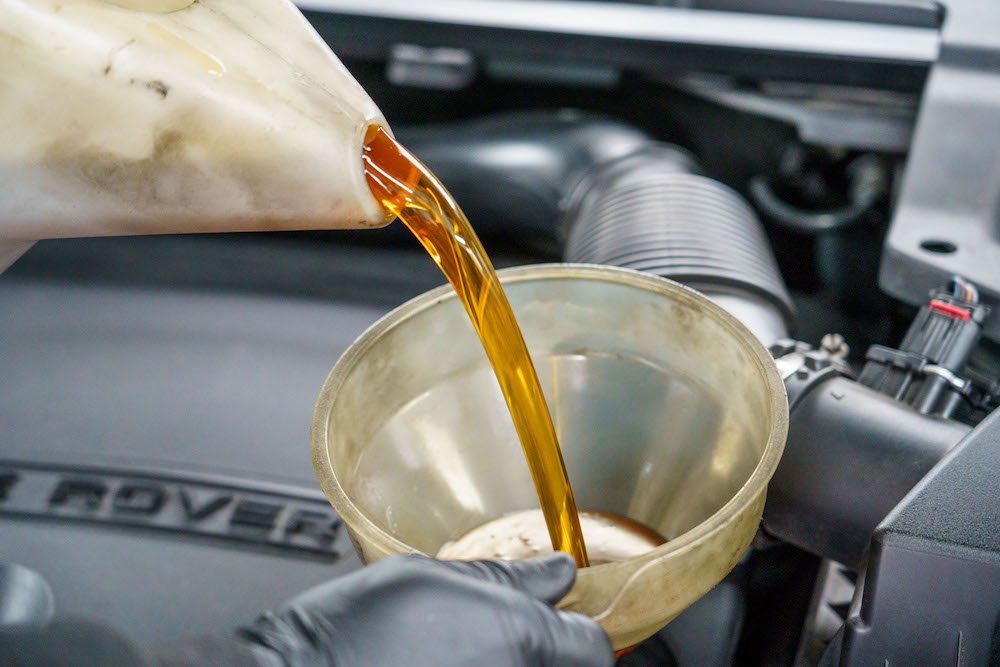Oil Changes
The significance of timely oil changes and using quality, genuine oil can’t be reiterated enough times. It’s where you shouldn’t be afraid of spending money, as regular oil changes are crucial to preserving your engine at its finest condition for extended periods of time. The conventional oil change is a must for all cars.
Certainly, saying engine oil is imperative to any engine is but a trite platitude, people know that. What’s less known though is the fact that there are actually different types of oil changes out there, other than just ‘conventional oil changes’.
- Break-in Oil Change
- Normal Oil Changes
- Conventional Oil Change
- Synthetic Oil Change
- High Mileage Oil Change
Break-in Oil Change
Most people wouldn’t even notice that the first oil change is a little bit special since most modern cars are getting so good at eschewing the need for special engine break-in procedures. This is mostly due to manufacturers breaking-in the engine prior to putting them in.
The break-in period is essentially controlled wear within an engine’s moving parts as a final procedure to engine building. Typically, during this period the driver would have to drive the vehicle at varying loads to shape the parts correctly.
Back in the days, proper break-ins procedures were of particular importance, since improper break-in can actually result in catastrophic engine failure or poor running. If you are intrigued by this process, I suggest you read it up, as the classic procedures could take up to days.
Thanks to contemporary engine manufacturing processes and material engineering, however, this process takes much less time in comparison. In fact, new car buyers needn’t even worry, as new cars nowadays adhere to normal oil change intervals even for the first oil change.
Typically, during this first oil change, the technician will drain the oil and look out for potential concern, such as excessive metal shavings. Therefore the first service is very important to an enduring engine.
Break-in oil will also generally be a different blend of lubricant compared to normal oil. However, with most of the process already carried out by the manufacturer, new car owners only have to worry about visiting the dealer when the time comes.
Normal Oil Changes
After the break-in period, the type of oil changes can generally be segregated into two main categories: synthetic oil change and conventional oil change.
Conventional Oil Change
Conventional oil change is rarely carried out for modern cars at all since synthetic oil became widespread and easily sourced. What conventional oil denotes is basically petroleum-based oil, and for older cars that are rarely driven it will work just fine.
Of course, the main advantage to running conventional oil is that it’s much more affordable pound for pound. Sure, it’s more prone to sludging and buildup meaning that you’ll have to change it at shorter mileage intervals, but if your car is old and barely gets driven, why splurge for synthetic?
That said, there is a big disadvantage to conventional oil changes, and that’s the limited operating viscosity range. Conventional oil can only be manipulated so much, and it means bad news for places that experience eclectic climate throughout the season.
It’s also thicker, which is reflected during oil changes where conventional oil flows akin to molasses. This can impact fuel economy and engine wear to a certain extent.
Synthetic Oil Change
Synthetic oil is made possible thanks to advancement in technology, and it allows oil flexibility never before thought possible. Visually it’s difficult to tell between synthetic and conventional oil, but it’s imminently palpable once poured into an engine.
They are more expensive but are also available in broad viscosity indices. It’s an appealing option for those living in varying climate since it maintains good flow rate in the cold and is more resilient to breaking down at high temperature.
Perhaps even more pertinent for the keen buyers is the fact that synthetic oil is also more durable, and modern fully synthetic oil can last for over 7,500 miles easily. They’re also lower friction improving engine efficiency, and in some cases can help clear up sludges and buildups in the oil galleries.
Think of it as a premium oil change, but a premium that’s value for money and well worth spending the money on.
High Mileage Oil Change
It’s not exactly a different type of oil change, but it’s also worth noting that at high mileage, you should switch up your preferred oil. The reason is simple, oil plays a big role in micro-sealing, which is necessary to maintain optimum cylinder compression ratio.
Since piston rings and various engine bearings and parts wear out over time, even with engine oil, it is recommended that you switch to a thicker viscosity oil to avert excessive oil consumption in a worn engine.
Verdict
Oil changes are a simple task to undertake, but there’s a lot more science behind just draining and replacing engine oil. It’s worth spending the time to research more on engine oil for the benefit of your vehicle’s longevity.
Good oil is worth it, but you should also know what type of oil you should use for your specific application. No use spending more for the fully synthetic oil that you’ll never need, but its prudent that you avoid oil that’ll noticeably negatively impact engine efficiency.


2 comments
My uncle plans to sell one of his old coupes to settle his losses from gambling. I had no idea that changing a car’s oil is essential to extend its lifespan. I’ll be sure to recommend that he contact an oil change expert that can do this for him regularly.
It’s interesting to know that the viscosity is also an important thing to consider when it comes to choosing the right oil change. I recently bought a new car and I’d like to take it to an auto service soon. That way, I can ensure that it will perform its best right off the the bat.